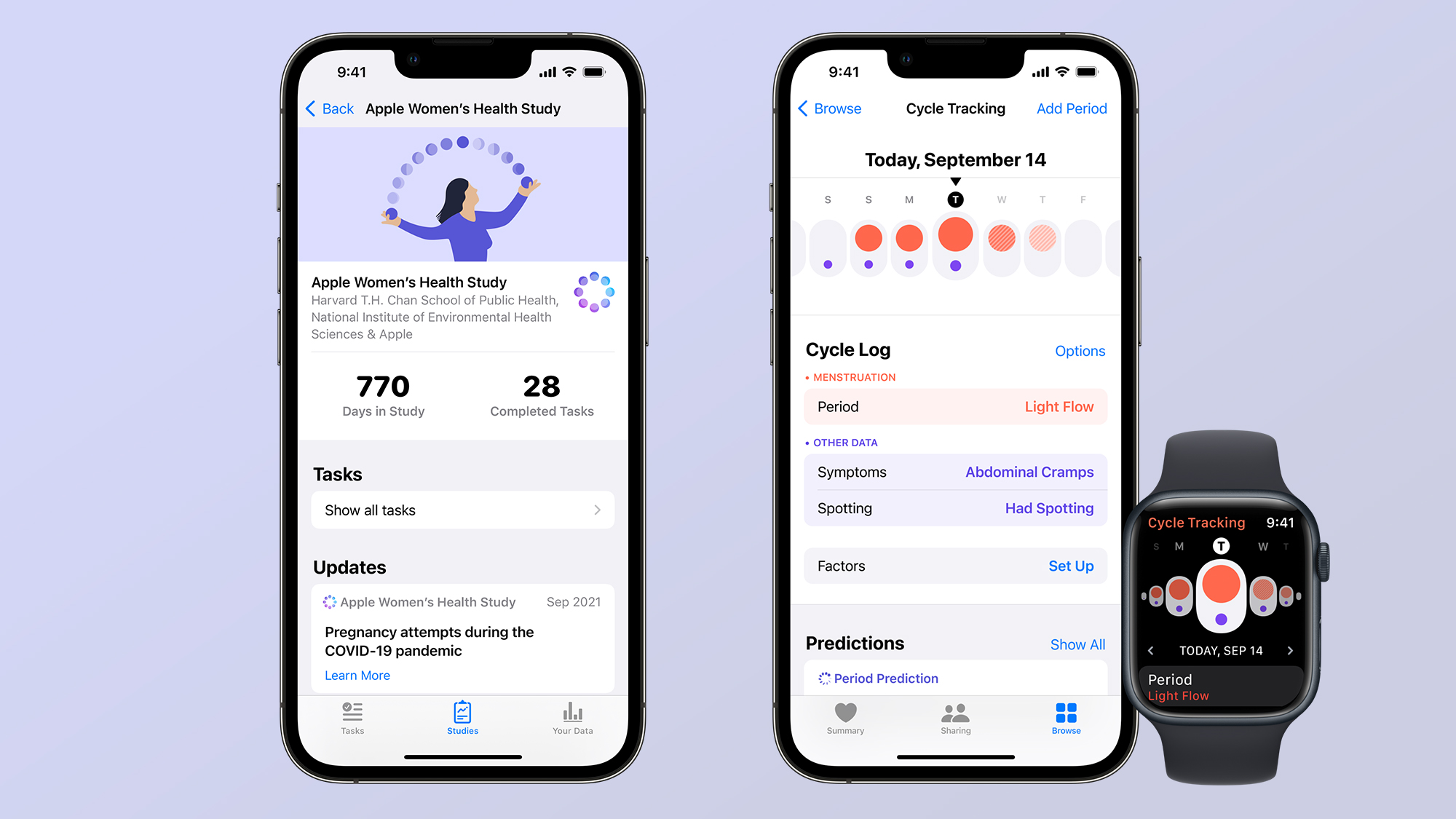Apple Women's Health Study sheds light on PCOS — and it's a game changer for me
The Apple Women’s Health Study just published the PCOS research I've been waiting for

Apple has published an update to the Apple Women’s Health Study initiative ahead of International Women’s Day. The update includes preliminary data about polycystic ovary syndrome (better known as PCOS) collected from female iPhone and Apple Watch users.
PCOS is a gynecologic condition that impacts menstrual cycles, fertility, hormonal balances, and weight retention. According to the Apple Women’s Health Study, those with PCOS could also be three times more likely to have diabetes, and two times more likely to have high blood pressure and high cholesterol — all serious strains on heart health.
Researchers from the Harvard T.H. Chan School of Public Health found that 12% of participants reported a PCOS diagnosis. That’s on par with the CDC’s understanding of PCOS, which is that up to 5 million women in the U.S. of reproductive age might suffer from the condition.
Despite the condition’s apparent prevalence and long-term heart health concerns, in the year or so since I’ve received my own PCOS diagnosis, I’ve needed to define its meaning and symptoms to not just friends and family, but even some medical professionals outside of gynecology. I’d bet a number of people reading about these Apple Women’s Health Study results today are hearing the term PCOS for the first time.
The condition is under-researched and likely under-diagnosed, with common symptoms difficult to correlate unless they’re being tracked over time. I blamed my miserable bursts of acne on birth control, and assumed it wasn’t all that unusual to experience irregular periods. Frequent headaches and weight retention upset me, but I had no indication that these symptoms could be blamed on a singular issue. It wasn’t until I requested a comprehensive blood test that my primary care doctor saw higher levels of androgen in my system and connected the dots.
Another traditional way to diagnose PCOS is to undergo an ultrasound exam and look for ovarian cysts. Though not everyone with PCOS might have them, or might not have them at the time of the exam. In fact PCOS could look a little different for everyone, even between women in the same family. 23% of participants in the health study with PCOS also had family history of PCOS, which is the case in my family as well.
The Apple Women’s Health Study is hoping that the iPhone Health app and a number of the best Apple Watch apps for health might be able to point out possible PCOS trends. Though Apple’s devices cannot provide medical diagnoses, symptom-tracking could help a user inform their doctor about what’s going on with their body.
Sign up to get the BEST of Tom's Guide direct to your inbox.
Get instant access to breaking news, the hottest reviews, great deals and helpful tips.
Apple’s cycle-tracking app is perhaps the most obvious tool given irregular periods is one of the most common PCOS symptoms, with almost half (49%) of the participants with PCOS reporting they've never had regular menstrual cycles or achieved regularity only after using hormones.
The ECG app could also prove essential to understanding PCOS, given the condition's possible impact on heart health. Irregular heartbeat or arrhythmia was more common among participants with PCOS (5.6%) than participants without PCOS (3.7%), according to the study. I even found activity tracking was useful for asking my doctor why I wasn’t losing weight while leading a very active lifestyle and closing my Apple Watch rings every day.
Again the condition is under-researched, though the Apple Women’s Health Study is promising further analyses on this preliminary data. Still, to see the efforts published is extremely validating and assuring that later results could lead to better PCOS management options in the future.
"Moving forward from this preliminary analysis, we hope to create a larger foundational data set on PCOS, with self-tracked variables, and its connection with heart health, which can contribute to understanding the condition, developing treatments, and inspiring new areas of research across women’s health,” said co-principal investigator Shruthi Mahalingaiah, MD, MS, FACOG, an assistant professor of environmental, reproductive, and women’s health at the Harvard T.H. Chan School of Public Health.
“Our hope is that by expanding the understanding of the public health burden of PCOS, we can create research models that can be applied to further scientific understanding of other health conditions and the burden of other diseases.”
You can read more about how the iPhone and Apple Watch are becoming vital health devices with such studies as this in the Health app.
Kate Kozuch is the managing editor of social and video at Tom’s Guide. She writes about smartwatches, TVs, audio devices, and some cooking appliances, too. Kate appears on Fox News to talk tech trends and runs the Tom's Guide TikTok account, which you should be following if you don't already. When she’s not filming tech videos, you can find her taking up a new sport, mastering the NYT Crossword or channeling her inner celebrity chef.

